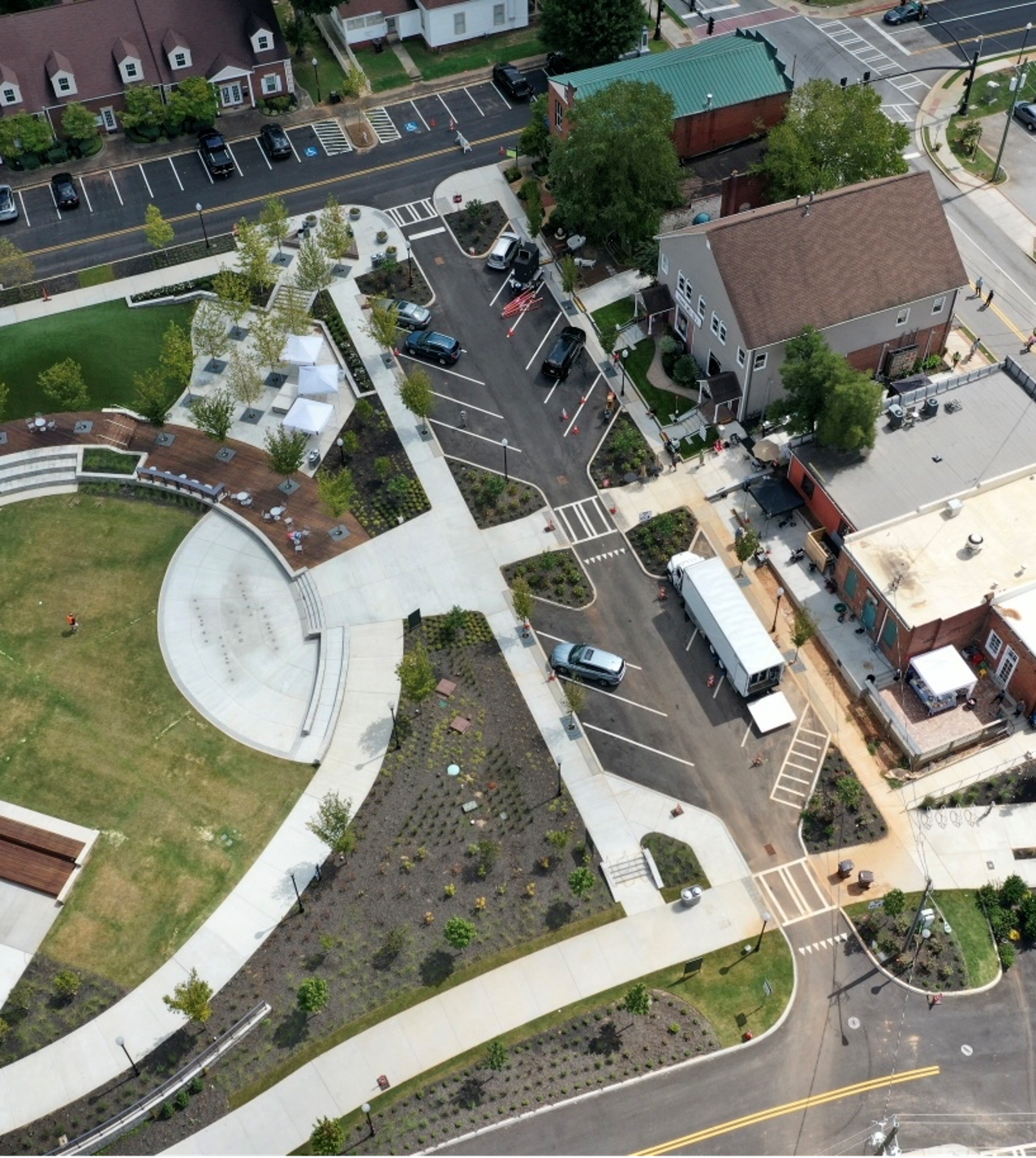When the pandemic forced most office workers to work remotely last year, the city of Powder Springs and its 69-person staff faced many of the same challenges as other organizations—in addition to the extra hurdle of staying accessible to over 15,000 citizens and 650 businesses.
Before this, City Manager Pam Conner had just started conversations with her senior staff about adding telework benefits for some employees. However, the sudden arrival of the COVID-19 pandemic forced Conner to make quick decisions.
“We all needed to be safe, and we still had to find ways to serve the public during the pandemic,” explained Conner.
After some careful deliberation—and help from Georgia Commute Options’ expert consultants— the city found solutions that served all employees. Here’s how they did it.
Making the Transition
In March 2020, Conner and city management kicked into full gear to orchestrate their public health response, closing all government buildings. She directed frontline and essential employees like public safety and sanitation to continue reporting in the field. Conner also rolled out stopgap guidance via a boilerplate telework policy to bridge key public services that staff could complete remotely.
This interim solution was adequate initially, but as the pandemic lingered, Conner realized she needed a telework solution built for the long term. She brought in help from Georgia Commute Options’ Worksite Advisor Daniel Foster and telework consultant Elham Shirazi. They conducted an initial review of the city’s telework policy, providing advice to bring it up-to-speed. The most vital recommendation was to listen to their employees.
Hearing First-Hand from City Employees
Georgia Commute Options facilitated two focus groups to hear directly from employees and senior staff about their work experiences during the pandemic.
In one group, managers and directors exchanged concerns about monitoring employees’ progress and demonstrating to the public that their department was still providing all necessary services. On top of that, they wanted more ways to extend support to their teams, especially during the most challenging months of the pandemic.
The other focus group involved discussions with all non-managerial employees, including both those who could telework and those whose jobs required them to report in the field. The city learned that employees preferred flexible schedules that accommodated at-home demands. They also heard consensus around more quality time for personnel across departments.
Being Responsive to Employees’ Needs
Freshly equipped with these insights from the focus groups, Conner could tailor the city’s telework policy and practices. Conner gave special consideration to solutions that accommodated varying schedules, including setting boundaries for work and home life.
“We were careful not to make anyone feel obligated to be online outside of traditional business hours,” explained Conner. “Even during business hours, we encouraged flexibility so that people could take care of home priorities or just refuel.”
Managers began holding weekly video meetings with each team for casual check-ins to build rapport. The city also had monthly socially distanced meetups when the weather cooperated to boost employee morale and reconnect all city employees.
To show appreciation to the city’s workers who were unable to work from home, Conner allowed essential employees who had to report for in-field assignments to accumulate extra vacation days, which they could either use immediately or cash out at a later date.
Looking to the Future
Throughout this process, Powder Springs uncovered lessons that will inform its telework policy well beyond the current moment. As Conner sees it, city employees in public-facing roles may have to be in the office more often, while others can work remotely some of the time. Their telework policy will only improve as the city enters the future of hybrid work.
“This experience during the pandemic has shown us that our telework program in the future can expand to more employees than I would have ever anticipated,” Conner said. “This required us to build a good policy. And with help from Georgia Commute Options, we were able to create one that addresses not just where and when our people are working, but also their needs for equipment and safety.”
Leading companies and organizations are rethinking where, when and how we work for a better, more resilient future. Learn how Georgia Commute Options can help prepare you for what comes next, including telework and flexwork consulting and commuter support available at no cost to employers in the Atlanta region. Get started by emailing us: telework@gacommuteoptions.com.
